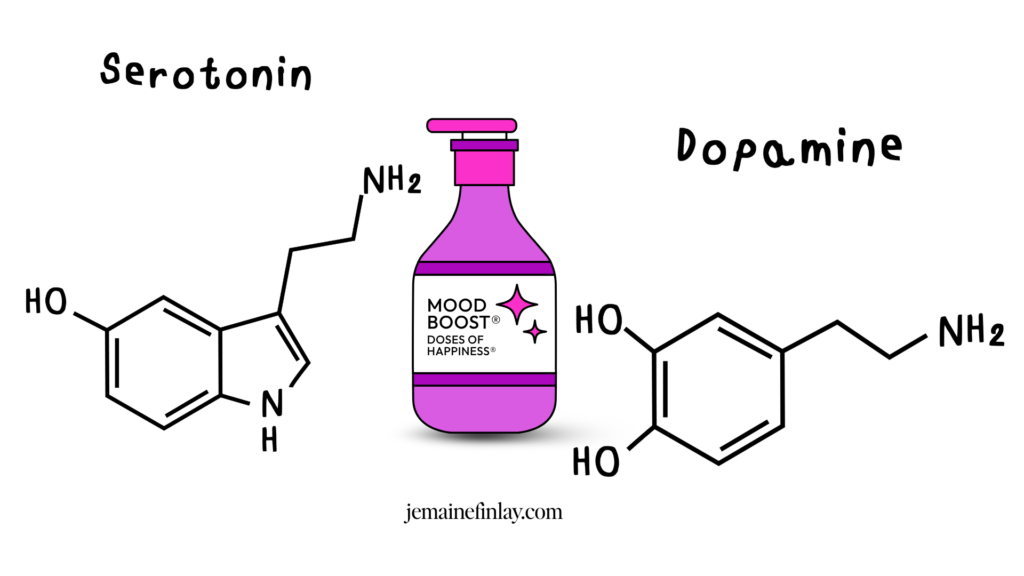“Enjoy the little things. For one day you may look back and realize they were the big things.”
– Robert Brault
If you’ve ever rolled your eyes at someone telling you to “just be grateful” while you’re drowning in overwhelm, managing everyone else’s emotions, and running on fumes—this one’s for you.
Let’s get one thing straight: There’s nothing wrong with you if gratitude feels impossible right now.
When your nervous system is stuck in fight or flight—scanning for threats, managing crises, and keeping everyone else afloat—your brain literally can’t access the neural pathways associated with appreciation. This isn’t a character flaw. It’s neuroscience.
The Real Reason Gratitude Can Feel Impossible
Here’s what no one tells you about gratitude: your brain needs to feel safe before it can feel grateful.
When you’re chronically stressed, your amygdala (the brain’s alarm system) is hypervigilant, constantly scanning for problems to solve. Meanwhile, your prefrontal cortex – where gratitude, perspective, and emotional regulation live – goes offline.
Dr. Rick Hanson, neuropsychologist and author of “Hardwiring Happiness,” explains it this way: “The brain is like Velcro for negative experiences and Teflon for positive ones.” When you’re in survival, this negativity bias goes into overdrive.
Translation: Your brain is doing exactly what it’s supposed to do. Where it becomes limiting it that it gets stuck in a pattern that once kept you safe but now keeps you exhausted.
Why Traditional Gratitude Can Feel Like Gaslighting
Most gratitude advice assumes you have the emotional bandwidth to reflect on big, meaningful things. But when you’re overwhelmed, being told to be grateful for your health, family, or home can feel like emotional gaslighting.
Gratitude isn’t about convincing yourself your problems don’t matter. It’s about training your nervous system to recognize safety and sufficiency—even in small moments.

The Micro-Appreciation Method: Gratitude for Theb Overwhelmed
This approach works because it meets you where you are—not where wellness culture thinks you should be.
Level 1: Sensory Anchors (When everything feels chaotic)
Start with what your senses can immediately access:
- The warmth of coffee in your hands
- A moment of quiet before anyone wakes up
- The feeling of clean sheets
- Your favorite song coming on the radio
- A text from a friend
Why this works: These micro-moments don’t require cognitive effort or emotional processing. They just need noticing.
Level 2: Body Appreciations (When you’re disconnected from yourself)
- Your lungs breathing automatically
- Your heart beating steadily
- Your legs carrying you through the day
- Your hands being able to hold, create, comfort
Why this works: Chronic stress disconnects us from our bodies. Body-based gratitude rebuilds that relationship and signals safety to your nervous system.
Level 3: Capacity Recognitions (When you feel like you’re failing)
- “I showed up today, even though it was hard”
- “I made a decision when everything felt uncertain”
- “I took care of someone else when I was running on empty”
- “I asked for help when I needed it”
Why this works: This acknowledges your resilience without minimizing your struggle.
The 3-Breath Reset: Gratitude Without the Spiritual Bypassing
When traditional gratitude feels too much, try this:
- Breath 1: Notice something your body is doing well right now (breathing, holding you up, healing a cut)
- Breath 2: Acknowledge one way you’ve shown up today (making coffee, sending a text, getting dressed)
- Breath 3: Appreciate something in your immediate environment (sunlight, music, a comfortable chair)
That’s it. No journaling required. No forced positivity. Just three conscious moments of noticing what’s already working.
What the Research Actually Says
Dr. Robert Emmons, gratitude researcher at UC Davis, found that gratitude practice:
- Increases dopamine and serotonin (your feel-good neurotransmitters)
- Reduces cortisol by up to 23%
- Activates the parasympathetic nervous system (your “rest and digest” mode)
- Strengthens neural pathways associated with emotional regulation
The key: These benefits happen even with micro-practices. You don’t need to feel overwhelming gratitude. You just need to notice small appreciations consistently.

The Hidden Superpower: How Gratitude Rewires Your Reality Filter
Here’s where it gets really interesting: gratitude literally changes what your brain allows you to see.
Your reticular activating system (RAS) is like your brain’s personal Google algorithm. It filters through the 11 million pieces of information hitting your senses every second, deciding what’s worth your conscious attention. And here’s the kicker—it prioritizes whatever you’ve been focusing on.
Think about it: You decide you want a red car, and suddenly you see red cars everywhere. They were always there, but your RAS wasn’t flagged to notice them.
When you’re chronically stressed, your RAS is programmed to scan for problems, threats, and everything that’s going wrong. This keeps you stuck in what researchers call “threat-detection mode”—constantly collecting evidence that life is hard, people are unreliable, and nothing ever works out.
But here’s the beautiful part: micro-appreciations hack this system.
When you consistently notice small positive moments—even tiny ones—you’re essentially reprogramming your brain’s search engine. Dr. Shawn Achor’s research at Harvard found that just 21 days of gratitude practice begins to shift your RAS toward noticing opportunities, support, and positive experiences that were invisible before.
Translation: You’re not just feeling better in the moment. You’re training your brain to automatically filter for evidence that good things exist, people care, and resources are available.
This isn’t about rose-colored glasses or denial. It’s about balanced perception. When your RAS learns to notice both challenges AND possibilities, you operate from choice instead of survival mode.
The micro-appreciation method works so well because it gives your RAS specific, achievable targets: warm coffee, a friend’s text, your body functioning well. Small enough to notice consistently, powerful enough to shift your brain’s default filtering system.
Over time, this creates what neuroscientist Rick Hanson calls “positive neuroplasticity”—your brain literally becomes better at recognizing safety, connection, and abundance in your daily experience.
When Gratitude Feels Like Lying to Yourself
Sometimes well-meaning people suggest gratitude as a way to minimize legitimate struggles. This isn’t that.
Real gratitude says: “This is hard AND there are still things working in my favor.”
Spiritual bypassing says: “Everything happens for a reason, so just be grateful.”
The difference? Authentic gratitude doesn’t require you to abandon your feelings or pretend your problems don’t exist.
You can simultaneously:
- Be grateful for your morning coffee AND frustrated with your workload
- Appreciate a friend’s text AND feel overwhelmed by your responsibilities
- Notice a beautiful sunset AND grieve what you’ve lost
Your Gentle Rebellion Starts Here
In a culture that demands constant productivity and positivity, practicing micro-appreciations is a radical act. You’re telling your nervous system: “It’s safe to notice what’s good. It’s safe to rest in this moment. It’s safe to be human.”
Try this tonight: Before bed, place your hand on your heart and acknowledge one micro-appreciation from your day. Not because you have to feel grateful, but because your nervous system deserves the reminder that goodness exists—even in the smallest forms.
This isn’t about becoming a relentlessly positive person. It’s about becoming a grounded one.
The world needs your sensitivity, your depth, your ability to hold complexity. But first, you need to remember: you’re not just surviving. You’re also quietly, powerfully, consistently showing up.
And that, beautiful human, is worth appreciating.
If you loved this article I know you will love the practical tips and insights from these too:
5 Fast-Acting Nervous System Reset Tools for Busy Women
Manifestation: Why Your Brain Blocks What You Want (And How to Fix It)
Why You Self-Sabotage (And Your 5-Step Escape Plan)
If you’re ready to move beyond survival and start thriving with your nervous system on your side, I’d love to support you further:
Start with WILD Woman audiobook to reconnect with your authentic power
Dive deeper with Mindset Reset to rewire those default thought patterns
Join Unparalleled Potential for weekly neuroscience-backed wisdom delivered to your inbox
Because you deserve to feel grounded, grateful, and genuinely at peace—not just productive.
So my friend, what micro-appreciation will you notice today? I’d love to hear about it— leave me a comment below and tell me about the small good thing that caught your attention.
If this resonated, send this article to another woman who might need permission to start small. Tell her your grateful for her. Sometimes the most powerful thing we can do is remind each other that we’re allowed to feel whatever we’re feeling—and still find tiny moments of appreciation anyway.





Read the Comments +